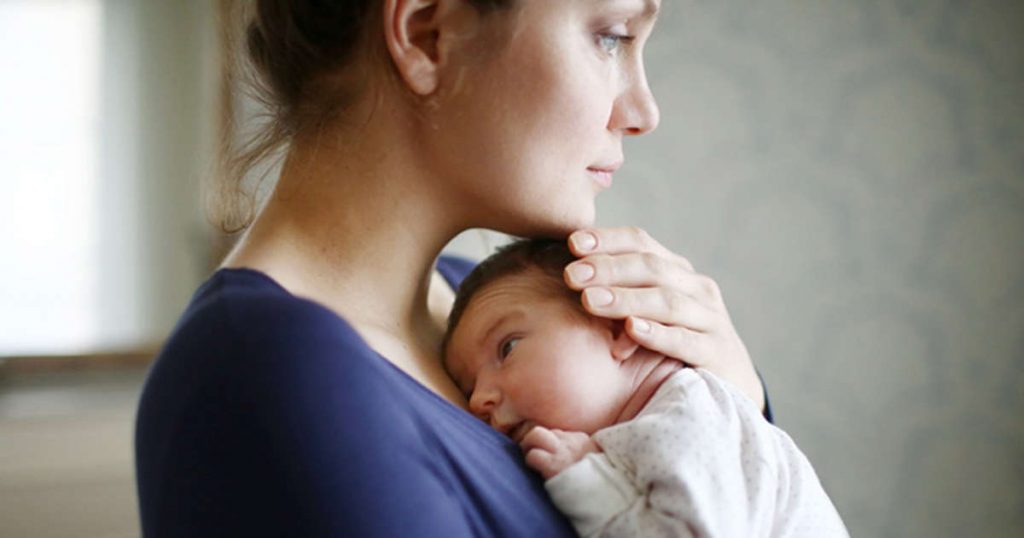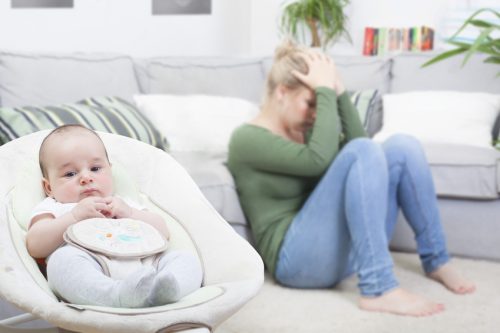“If I hear you say that one more time, I will throw you off a bridge,” the depressed mom thought with a huge, agonizing grin on her face. She nods and pretends to listen through the tedious, unhelpful monologue from her relatives that have no clue whatsoever about what postpartum depression is and how it actually feels.

The Painful Reality
According to Samantha Meltzer-Brody, MD, MPH, “Women with PPD usually have low mood, prominent anxiety and worry, disrupted sleep, feelings of being overwhelmed, and can also feel very guilty that they are not enjoying their experience of motherhood.”
It’s no secret that the majority of people will give out silly comments, opinions, or advice that are mostly directed to people who are suffering from mental illnesses. Having a baby and being depressed at the same time does not exempt the mother from being a vessel for unwanted remarks and superficial concern. In fact, it’s after childbirth that depressed women receive the most attention and criticisms.
Now this: You are not the only person who struggles with your frustrations of being a depressed mom. There are a lot of women with postpartum depression who are now victims of flimsy, unnecessary acknowledgments.
Side note: If you think you have postpartum depression, the most important thing that you should do is seek professional help to avoid distressing complications not only for you but for the baby as well.
“PPD is a serious illness that requires professional help. It’s highly treatable with psychotherapy and medication,” says Margarita Tartakovsky, M.S.

Relatable Annoyances
Somehow, there will be a specific situation below that you will find relatable. These frustrations are laid out not to perpetuate or normalize these cases but to recognize it and possibly lessen its existence.
“I don’t know what’s wrong with me. I’m supposed to feel a surge of maternal instinct, right? I’m supposed to love my baby. Why am I so overwhelmed and uninterested?” Marie Hartwell-Walker, Ed.D. says that these are the common words of women going in her office for therapy with their PPD.
- You Are Just Dramatic
Telenovelas are dramatic, people with depression are not. Depression is a mental illness that does not go away overnight. It is as real as any other physical illness that requires medical attention. Telling a mom with postpartum depression that she is just over-reacting is similar to telling a person with chest pain that he is just climactic.
- Your Baby’s Supposed To Take The Sadness Away
With postpartum depression, the baby somewhat becomes a trigger; not because the mother despises the child but because whenever the mom sees her baby, some uncontrollable thoughts and feelings start to arise. The worst part is that moms know that their babies are a source of happiness, which is why asking someone with PPD to be happy because of the baby makes that person suffer even more because part of their brain makes them hard to do so.
- Visitations Are Agonizing
There are three classifications of people in this world – the ones who genuinely care, the ones who don’t give a crap, and the ones who pretend to care. The last one is the worst. Visitations are part of having a baby, but somehow, moms with PPD hate having people come over especially those who act like they care but in reality, they just want to pry and prove that they know what’s happening when in fact, they don’t.
- Calling Out For The Weight Loss
Just to set things straight – depression leaves people with no desire whatsoever to do enjoyable, healthy activities that they used to do. Therefore, mothers who have PPD lose weight not because they are engaged in weight loss activities but because they have lost the appetite to take in the recommended nutrition.

- Snap Out Of It
If depressed moms would have a dollar for hearing this from friends, family members, or even co-workers, she would’ve had a lifetime supply of depression medications and will have enough money to subscribe to an unlimited session with her therapist.
Again, if moms with postpartum depression could just “get over it,” they would have done so even before the condition worsened, but they can’t. And if you are experiencing PPD, it is comforting to know that other people can relate to your struggles and are willing to listen and understand.